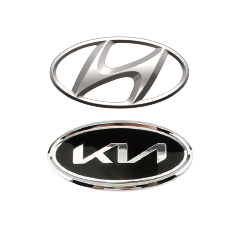I. About Bond
Bond is actually a representative of import insurance. Specifically appears in the import business in the emergence of uncertain reasons for not picking up the goods, abandonment of goods, the United States Customs in addition to the expected auction of goods, but also to the insurance company to apply for claims for goods imported to the United States of other operating costs, such as storage fees and so on.
Note: Not buying Bond is equivalent to not filing in the U.S. Customs. Even if you send the ISF can not be imported for customs clearance, while the goods are bound to be rejected by the customs after arrival and may require a fine.
Check the U.S. Customs information website can know, The U.S. Customs and Border Protection Bonds (CBP Bonds) refers to the U.S. Customs Service Bonds, Bond is a kind of U.S. importers, that is, to assume the Customs Service Guarantee of the party, you need to buy the bond. U.S. Customs can deduct money from the bond in order to prevent importers from incurring fines due to certain factors, so all goods imported into the U.S. need to buy a bond.
If the value of goods imported into the United States for commercial purposes exceeds $2,500, or the importation of goods belonging to other U.S. federal agencies to implement entry control requirements (such as firearms or food, etc.), it is necessary to use the Customs Service Guarantee, that is, the importer must buy Bond.
U.S. Customs Bonds are issued to businesses certified by the U.S. government. The U.S. Department of the Treasury website (https://www.fiscal.treasury.gov/surety-bonds/list-certified-companies.html) publishes and updates a list of surety businesses that are eligible to provide guarantees for U.S. Customs (Treasury Department Circular 570).
Second, the category of Bond
Since the Bond serves as insurance, it will certainly be divided. According to the age of the Bond will be divided into the following two categories:
A. Annual Bond [Continuous Bond]. From the literal meaning of the word can be known, the annual Bond only need to buy once a year, more suitable for import and export logistics within the year more frequent cargo owners. Can provide security for multiple customs operations continuous bond (ContinuousBonds).
B, single Bond [Single Transaction Bond], referred to as STB. some goods may exist dumping risk, the U.S. Customs will be required to purchase STB, so as to avoid losses.
In addition, the U.S. Customs currently provides a new guarantee business, that is, intellectual property rights holders of IPR Sample Bonds (IPR Sample Bonds) for intellectual property rights holders, IPR Sample Bonds belong to a kind of continuous guarantee.
In addition to the above-mentioned guarantees, which are only applicable to customs matters, companies can also use Consolidated Bonds. This type of guarantee not only guarantees customs compliance and customs duties, but also guarantees the guaranteed person's compliance with other import and export laws and regulations.
How is the guarantee amount calculated for ConsolidatedBonds?
The minimum coverage amount for both types of Bonds is US$100. In the case of a bond for customs affairs of an importer or customs broker, for example, the minimum amount of coverage for a continuous bond is calculated on the basis of 10 per cent of the total amount of duties, taxes and charges paid by the bonded person in the past 12 months. In addition, some items such as the amount of unpaid duties and fees are added.
Continuous guarantees are valid for one year or until the importer or guarantor cancels the letter of guarantee. U.S. Customs will periodically review the adequacy of the Continuous Guarantee to secure the guaranteed person's compliance and duty liability. It is important to note that the guarantee amount is not a premium. The premium is paid to the surety.
How to choose Bonds?
Companies can choose either one-time guarantees (SingleTransaction Bonds, STB) or continuous guarantees (ContinuousBonds). The cost of Continuous Bonds for the same customs business is obviously higher than that of one-time Bonds, but the cost of Continuous Bonds is spread evenly over each customs business guaranteed and is obviously more cost-effective than that of one-time Bonds.
The specific choice of bond is not simply a matter of the amount of the guarantee and the premium, but depends on the frequency and type of business that the enterprise imports goods into the United States. If the importation is only occasional, it is recommended to use a one-time bond. If goods are imported into the U.S. frequently and through various ports of entry, a continuous bond is the best choice in terms of efficiency and economy.




